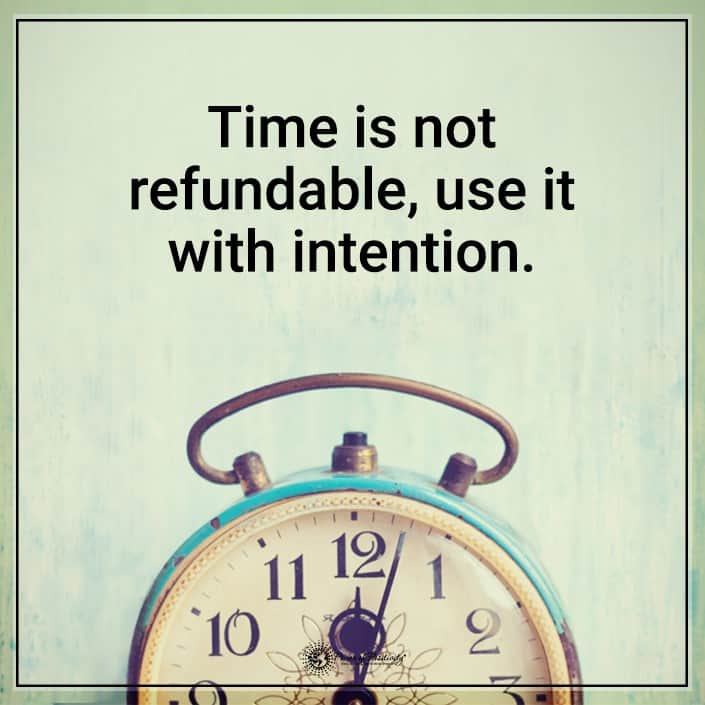Most people strive for happiness in their lives. It’s an admirable goal to be happy. Many even hold it up as a final ideal, an end goal that will mark their true success. Some might even feel disappointed with themselves when they “let” some happiness drop. But is this really a good thing?
The fact is that happiness was never meant to be a constant emotion. On top of that, it can actually actively harm you if it’s excessive! Here’s how experts reveal 8 reasons why being happy all the time isn’t healthy.
1. Not All Situations Should Involve Happiness
Being happy all the time isn’t practical because it’s not really appropriate to be happy in all situations. Human beings have emotions for a reason – to meet challenges, adapt to opportunities and new situations, and respond well to the environment. That cannot be done if you’re always happy.
Charles Carver, a psychologist, states that positive emotions in general, happiness included, can lead to the act of slowing down and just “coasting” mentally for a while. This is because happiness is meant to be a signal of fulfilled desires or goals. Unfortunately, this means that always being happy can lead to decreased performance, especially in challenging or competitive environments. In fact, being angry is likely to boost your performance more than happiness!
Knowing when it’s okay to feel bad is crucial for overall health and happiness. If you want to perform well, you don’t need constant overwhelming and unbalanced positivity – you need realism and emotional balance.
2. It’s Important To Truly Feel Your Feelings
Some people may be tempted to try and dismiss all negative emotions. If that sounds like you, you’re actually doing more harm than good. By replacinglings completely and becomingbecomingng but positive, you’re not really getting rid of the bad – only repressing it.
In most cases, someone who feels happy all the time isn’t being honest about their emotions with themselves, says Suzannah Weiss, a highly-published lifestyle writer who has degrees in Cognitive Neuroscience, Gender & Sexuality Studies, and Modern Culture & Media. It’s a dangerous cycle to get used to repressing emotions, and those repressed feelings can come back to bite you later. Here are some reasons it’s important to feel your feelings:
· You Shouldn’t Have To Perform
Hiding your feelings behind facades of happiness is a kind of performance. Constantly performing this “positivity” stops you from being human. You’re supposed to have ups and downs, and you shouldn’t be performing ups only, especially if it’s only because you feel pressured to act happy by those around you.
· You Want To Appreciate Happiness
If all you are is forcibly happy, you stop feeling appreciative of that happiness. In fact, happiness is now more negative, as you have to force that emotion. Letting yourself feel negative emotions means that you’ll be more grateful for times of positivity.
· You Need The Feedback
Your emotions exist for a reason. They’re valuable feedback provided by your brain for your wellbeing. Emotions are a chance to stop and reflect on why you feel those ways, allowing you to learn and grow through difficult times. In other words, feeling negative emotions can make you a stronger person!
· Bad Feelings Can Make Good Memories
Some people think that they need to force happiness,, so they don’t waste their lives on negativity. While it’s true that wallowing isn’t good, it’s also true that good memories don’t need to involve happiness. Letting yourself be vulnerable, allowing negative emotions to exist, and watching yourself rise from negativity again are all wonderful ways to make memories. Part of the human experience is going through ups and downs, and you’ll remember your strength, the people who helped you, and how you climbed up again!
3. There Is A Difference Between Happiness And Purpose
A lot of people conflate the idea of happiness with meaning. While the meaning is necessary to have most of the time in life, happiness is a completely different. Professor of counseling psychology, speaker, and author David B. Feldman, Ph.D. states that there are two common kinds of experiences that make people feel that their lives are worth living:
- Hedonic experiences, which relate to pleasurable activities such as eating sinful foods, watching a sunset, watching your favorite shows, or enjoying intimacy
- Eudaimonic experiences, which relate to personal purpose, typically relating to living by certain values, making a difference, helping others, or completing goals and projects
- These two experiences are distinct and separate, indicating that what is meaningful is not always pleasurable, and what is pleasurable is not always meaningful
Hedonic experiences are often generally considered the things that create those moments of positive thinking and happiness – but as you can probably guess, they’re not sustainable and can’t – and shouldn’t – be done all the time. Having meaning in life is what should sustain you, not having bursts of pleasure.
4. It Reduces Creativity
Intense experiences of happiness that are unbalanced and disproportionate may actually lead to decreased levels of creativity. Basically, too much positive thinking can kill your ability to think outside the box and be open-minded!
Psychologist Barbara Fredrickson further expands on this by stating that this creativity decrease doesn’t just occur in obvious creative pursuits, like art or media. It also means:
- A lack of flexibility when facing difficulties
- An inability to come up with effective, unique, or innovative solutions in the face of challenges
- Difficulty accepting or understanding new perspectives from other people
- A lack of interest in learning or trying new things
5. Some Kinds Of Happiness Are Bad For You
Happiness is a spectrum. It’s not just one term with one definition. There are many different flavors and sources of happiness, each one providing valuable context to situations. Different happiness has different effects, according to Yale Positive Emotion and Psychopathology Laboratory director, licensed clinical psychologist, and assistant professor of psychology June Gruber, Ph.D., and not all of them are healthy.
- Make you feel closer to others.
- Increase energy levels
- Make you feel proud of yourself.
- Increase generosity
- Slow you down
Even more complex than that, each flavor of happiness can have “sub-flavors”! For example, being proud of your accomplishments and patting yourself on the back reinforces positive self-esteem, but being proud to the point where you act above others has social consequences. Understanding the nuances of happiness is important to ensure that you keep your emotions in check and stay grounded in the real world.
6. Negative Emotions May Improve Your Life
It goes without saying that a majority of people would rather never feel anything negative in their lives. But Feldman states that this may actually not be very positive, as negative emotions are typically crucial in at least some circumstances. For example:
- Fear and anxiety can warn you against threatening situations and circumstances
- Feeling guilty helps you reach the decision to make amends, take responsibility, or own up to mistakes
- Anger motivates you to stand up for yourself and refuse to accept injustice (and in some cases, may even get you more positive outcomes from interactions with others)
- Sadness helps you process difficult situations and makes you more grateful in happier times
- Regret can push you to do better in the future, learn from mistakes, or try to create a better world
The trick, of course, is not to go overboard with negativity. Anxiety to the point of an anxiety disorder, for example, needs medical attention. Or acting violently and lashing out in anger is not a good thing, as another example. Balancing negative emotions with positive ones allows you to have a more moderated, effective, and positive life overall.
7. It Can Threaten Safety
It’s hard to understand why being happy all the time could harm your personal safety, but all one has to do is look at what happiness is at its core. Let’s think, for a moment, about what happiness does. It:
- Focuses your attention on positive thinking, excitement, and great things happening in your world
- Reduces inhibitions, meaning you are likely to take more risks or be open to new possibilities off the bat
- Tries to sustain positive feelings by focusing for as long as possible on only the good
Now, imagine all of those great benefits of happiness, but taken to the far extreme. You might ignore risks for a prolonged period of time, stop noticing anything grounded in reality, and take leaps without looking or caring about what happens next.
Think it’s far-fetched? Science supports it. A study by psychologist Howard S. Friedman found that individuals who grow up being considered extremely cheerful had a higher chance of mortality carried forward into adulthood. This is because of a “happiness overdrive,” where they would engage in behaviors without caring about threats. This could lead to:
- Binge eating
- Risk-taking behaviors
- Promiscuity
- Excessive alcohol consumption
- Substance abuse
8. Constantly Chasing Happiness Is Bad For You
Everyone wants to be happy, but sometimes it becomes too much of an obsession. It’s fixed into our brains that we have to be happy and pursue that goal at all costs, and that being happy is a sort of end-goal. This is especially true for Americans, as the Declaration of Independence even includes a line on it!
But according to social psychologist and emotion regulation expert Iris Mauss, this is very counterintuitive. This is because:
- The more someone pursues happiness, the more likely that they are to set very high goals and standards for that happiness
- Higher goals and standards mean a lower chance of obtaining that gold-standard happiness they seem to want
- Trying to chase happiness excessively is essentially setting oneself for disappointment.
- Those with these lofty goals may not even be able to feel happy in positive circumstances, as their positive thinking is dependant on something almost unattainable.
- The pursuit of happiness may be associated with a worsened risk for mental disorders, including bipolar disorder and major depressive disorder.
Final Thoughts On Some Reasons Why Being Happy All The Time Isn’t Healthy
Negative emotions are normal and healthy in moderation. Even the happiest, most successful people you know experience negative emotions. It’s just part of the beautiful life you’ll live as a human being.
Instead of focusing on achieving constant happiness, focus on regulating your emotions, balancing your feelings, and addressing your negative emotions. You can learn, grow, and appreciate yourself, even more, that way!

















 Community
Community

